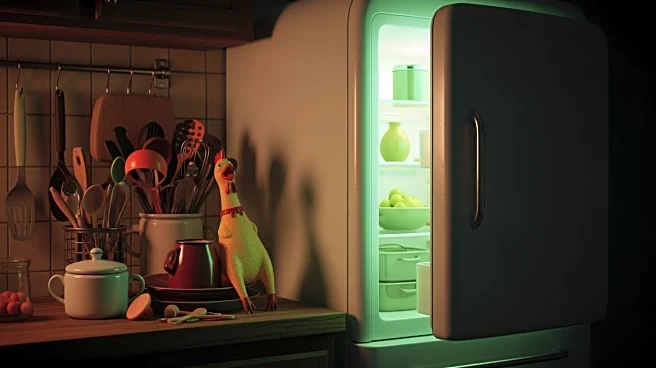What's Happening?
In a significant legislative move, enough Senate Democrats joined Republicans in a vote to break the impasse over the government shutdown. This vote marks a crucial step towards reopening the government,
which had been closed due to budgetary disagreements. The bipartisan effort reflects a willingness among lawmakers to find common ground and address the pressing issue of government operations. The shutdown had affected various federal services and employees, creating urgency for a resolution. The Senate's decision is seen as a pivotal moment in the ongoing negotiations, potentially paving the way for further discussions and agreements to ensure the continuity of government functions.
Why It's Important?
The resolution of the government shutdown is critical for maintaining essential services and ensuring that federal employees can return to work. The shutdown had disrupted operations across multiple sectors, including national parks, public health services, and federal law enforcement. By collaborating across party lines, Senate Democrats and Republicans demonstrate a commitment to governance and the welfare of the American public. This bipartisan approach may set a precedent for future negotiations on contentious issues, highlighting the importance of cooperation in addressing national challenges. The reopening of the government will also alleviate economic pressures and restore confidence in public institutions.
What's Next?
Following the Senate vote, the next steps involve finalizing the budget agreement and securing approval from the House of Representatives. Lawmakers will need to continue negotiations to address any remaining disagreements and ensure a comprehensive resolution. The focus will likely shift to long-term budgetary planning to prevent future shutdowns and establish a more stable fiscal environment. Stakeholders, including federal employees, businesses, and the general public, will be closely monitoring the developments to understand the implications for their interests. The successful resolution of the shutdown may also influence upcoming legislative priorities and the political landscape.
Beyond the Headlines
The bipartisan effort to resolve the government shutdown may have broader implications for political dynamics in the U.S. It could encourage more collaborative approaches to other divisive issues, such as healthcare reform and immigration policy. Additionally, the shutdown highlighted vulnerabilities in the budgetary process, prompting discussions on potential reforms to prevent similar occurrences. The event underscores the importance of effective governance and the need for lawmakers to prioritize the nation's interests over partisan agendas. This development may also impact public perception of political leaders and their ability to navigate complex challenges.









